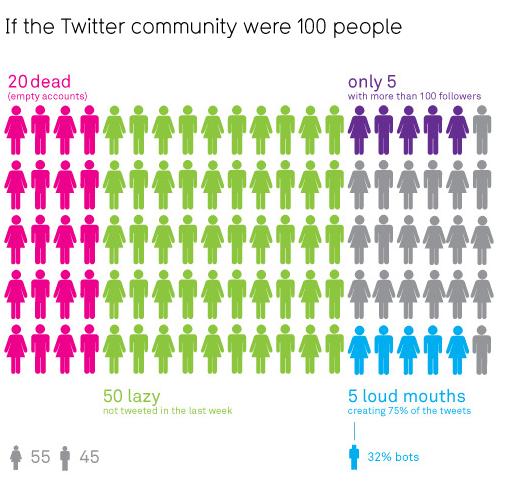With all the hype surrounding social media these days, it’s hard not to draw parallels to the dot-com boom that took place in the not-too-distant past. The shear growth which has occurred in the past few years on well-known social media websites such as Facebook, YouTube, Myspace, Twitter, and Wikipedia, to name a few, is at the very least mind-boggling. However, social media has in fact been around for longer than most people tend to believe.
One of the earliest forms of social media is the bulletin board. Here, information was exchanged freely within a network of individuals for (usually) the betterment of the organization. Anything “posted” to that board was easily accessible by one’s peers. Much the way weblogs today allow individuals to openly express their thoughts and ideas, so did the bulletin board.
Social media, in today’s definition, is significantly intertwined in the processes and technologies which make these types of interactions a reality. The World Wide Web has done wonders for the exchange of information, thoughts, and ideas on a global scale. So can the recent surge in social media be considered a fad, like bell-bottom jeans? Or is this really the wave of the future, a social revolution that might someday be compared to the Industrial Revolution as a critical time of change?
Here are some fascinating statistics, compiled by Socialnomics.com, which uncover how much an effect Social Media is having on our generation:
-
- Social Media has recently become the #1 activity on the Web
-
- 1 out of 8 couples married in the U.S. last year met via Social Media
-
- Years to reach 50 million users: Radio (38 years), TV (13 years), Internet (4 years), iPod (3 years), Facebook (100 million users in less than 9 months), iPod app downloads (1 billion in 9 months)
-
- By 2010 Gen Y will outnumber Baby Boomers, with 96% of them having joined a social network
-
- More than 1.5 million pieces of content (web links, new stories, blog posts, notes, photos, etc.) are shared on Facebook daily
-
- Companies care more now about how their social graph ranks their products and services than how Google ranks them
-
- 25% of search results for the World’s Top 20 largest brands are links to user-generated content
-
- If Facebook were a country, it would be the world’s 4th largest
-
- 80% of companies are using LinkedIn as their primary tool to find employees
However, as social media continues to evolve, individual users and companies alike must discover best practices in order to take advantage of this new technology to its fullest, or else face serious repercussions. For example, lately Twitter has come under fire due to a recent study by Pear Analytics, which found that 40.55% of total tweets captured could be found to be pointless babble. The graph below also takes a stab at Twitter, condensing its community down to 100 users and classifying them on usage patterns.
In this simplified breakdown of the Twitter user base, it is easy to see that currently, very few accounts utilize Twitter in an efficient way. The majority of users seem to lack frequent updates, a pivotal part to the successful functioning of Twitter. The second largest category is “dead” accounts, where somebody had created a profile yet for one reason or another has not yet used the service. What is interesting to note is that most of the noise found on Twitter is created by a very small portion of the entire user base, yet makes up 75% of the tweets found on the service.
These two sources bring to light that, while social media can be extremely useful, it can also be abused, and extremely inefficient when not correctly utilized.
So is social media just a fad? Some naysayers definitely think so. If anything, this revolution that we are currently in will drastically alter the way individuals interact and the way companies must market themselves to consumers. No longer will direct marketing generate a positive ROI on its own. Socialnomics.com notes that 78% of consumers trust peer recommendations, while only 14% trust advertisements. Companies instead must engage consumers in conversation, spark interest in relevant communities, and not instruct consumers on what their wants and needs should be, but instead listen to them. This, in turn, will lead to a positive buzz surrounding a brand and ultimately create those valuable personal recommendations all companies strive for.





